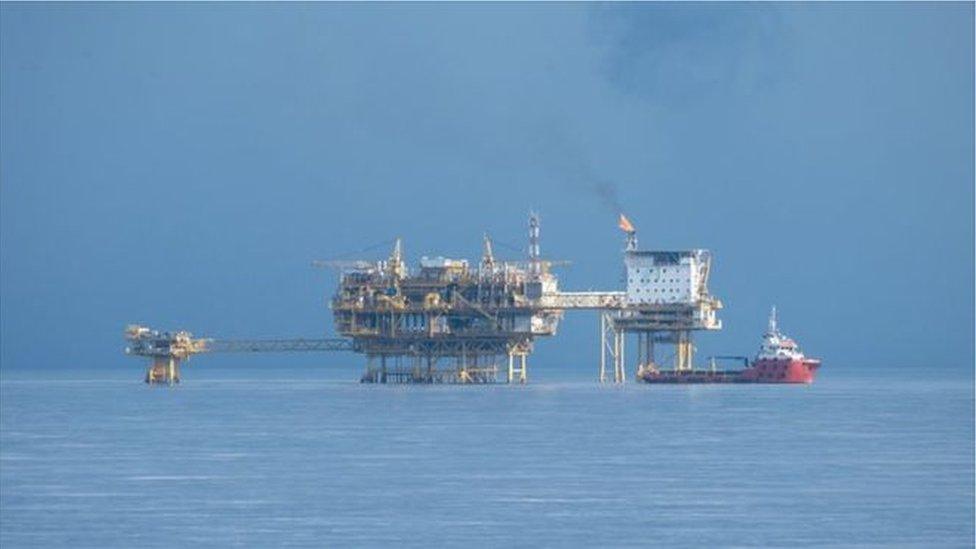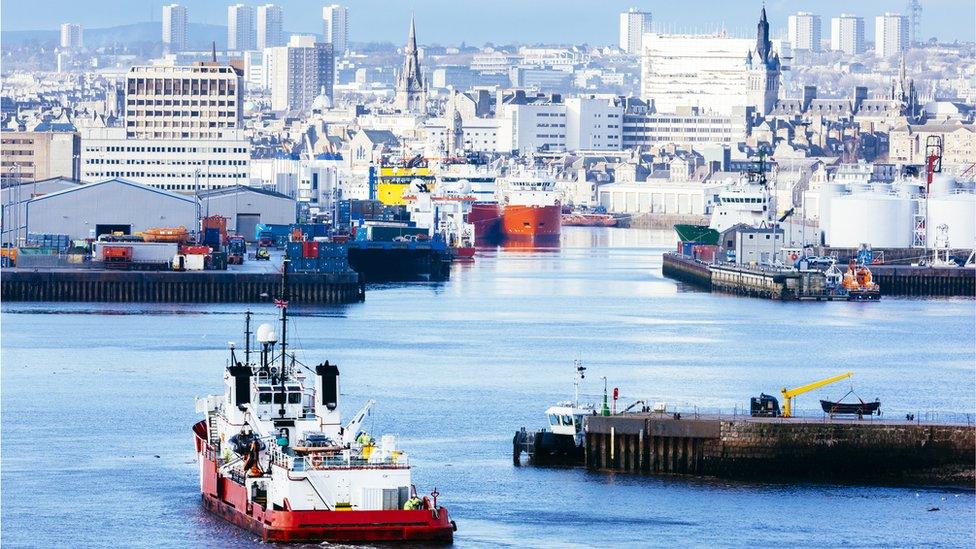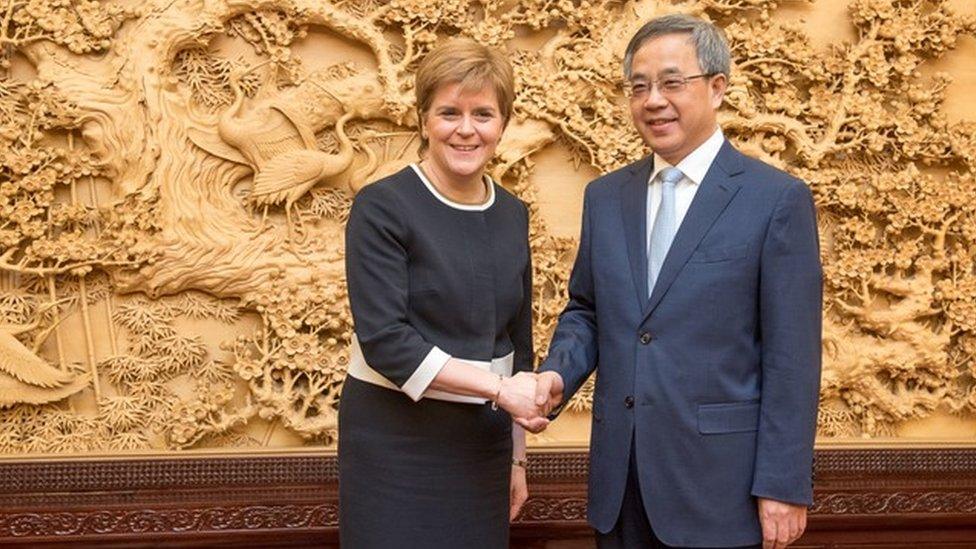The economy: inclusively stalled
- Published

There has been a drop in the mining and quarrying sector which includes oil and gas production
Scotland's been in recession. You may have missed it. It was as shallow a recession as it's possible to have. But in 2015, we had two quarters of economic output contracting.
It may seem late to be coming to this news. That's because the Scottish government's statisticians have been revising their figures, and from some years back.
It was economist John McLaren (he of the Scottish Trends website) who spotted it, with a fine eye for detail in the Excel spreadsheets.
The revised figures leave no doubt as to the reason. It was the category known as "mining and quarrying" that contracted by more than 10% in the course of 2015, and continued to contract the following year. That includes the business of producing oil and gas, though it's not a measure of the hydrocarbons' value themselves.
For controversial reasons with which you're probably familiar, neither oil nor gas count towards Scotland's total economic output. So it counts if you're laying or maintaining a pipeline, but not if you're pumping the black stuff into a tanker.

The UK government has used city deals as part of its response to the economic situation north of the border
So for the record, in the second quarter of 2015, there was a 5.2% drop in that "mining and quarrying" sector, followed in the third quarter by a 4.1% drop.
These were recently revised up: that is, the impact of the oil price slump was bigger than previously thought.
As a result, the economy as a whole contracted by 0.1% in the second quarter of that year, and by the same amount in the third quarter, before picking up. Two consecutive quarters of contraction equals recession.
So that was the recession over? Well, technically yes. But the worse bit was to follow in 2016. Not technically a recession, but no growth at all. Last year wasn't much better.
With three years of economic growth at or below 1%, sluggish growth is, almost as slowly, getting political traction.
Borderlands
The blame can be placed on the UK government, for its policy of squeezing public spending, and for the pursuit of the type of Brexit that could be economically painful.
Its response in Scotland - at least the distinctive one beyond the Treasury's main economic policies - is in city deals. This produces dollops of funds over decades, put down as a challenge to the Scottish government to find matching funds. Politically, it gives the Scotland Office and the Treasury a locus to have a role and a say in local and regional development north of the border.
And in devising a "Borderlands" regional deal, covering bits of the south of Scotland with parts of Cumbria and Northumberland, it doesn't take a political genius to see how that might fit into the Conservative Party's view of Scotland's constitutional future.

First Minister Nicola Sturgeon used her visit to China to promote Scottish business and exports
The Scottish government response includes, I hear, a new unit to focus on the challenge.
Ministers have been sitting on a report by the SNP's Growth Commission, headed by former MSP Andrew Wilson. That is primarily to reboot the economic case for independence, but as the name suggests, it ought to have some answers to sluggish growth in the meantime.
The Scotland is Now campaign has been launched, to co-ordinate the messages from the Scottish government, its agencies and universities on attracting tourists, foreign students, immigrants, inward investors and to boost exports.
The export and trade message was emphasised in China this week by the first minister's visit - across technology, offshore energy, salmon, whisky, education and digital games, and in the coming week by a Scottish Chambers of Commerce trade mission.
Nicola Sturgeon has been told by Graeme Roy, one of her former senior economic advisers - now at the Fraser of Allander Institute - that the growth policy is at risk from the clutter of initiatives and conflicting targets. With that in the background, she took the opportunity of a speech at a conference in Shanghai, organised by The Economist magazine, to refresh her distinctive message on growth.
It is no longer the single-minded "Purpose" of boosting growth pursued by Alex Salmond, but a growth conditional on being sustainable, with improved competitiveness and, above all, inclusivity. Broad-based growth is good for "moral, economic and political" reasons.
What she didn't say is that stagnation for the economy tends to be inclusive, though inadvertently, and is not good from those same perspectives.
Southbound
Conservatives point to the divergence in income tax bands and rates, introduced this month. That clearly cannot be to blame for three recent years of very little growth, but Tories argue that an increase in taxes is no way to boost growth for the future.
With Labour wanting higher taxes than the SNP, and Greens a big tilt to rebalance the tax burden onto higher earners and the wealthier, you can see how this is shaping up to be the defining battle of the 2021 Holyrood election campaign, and much of the time until then.
One other response from the Scottish government is to tackle the sense of neglect - if not the reality of it - in the south of Scotland. A new agency is being set up to mirror the work of Highlands and Islands Enterprise.
Arguably, it's 52 years late. It's certainly too late for the workforce at Pinneys seafood processing plant in Annan, which is due to close with the loss of 450 jobs.
More on that next time.